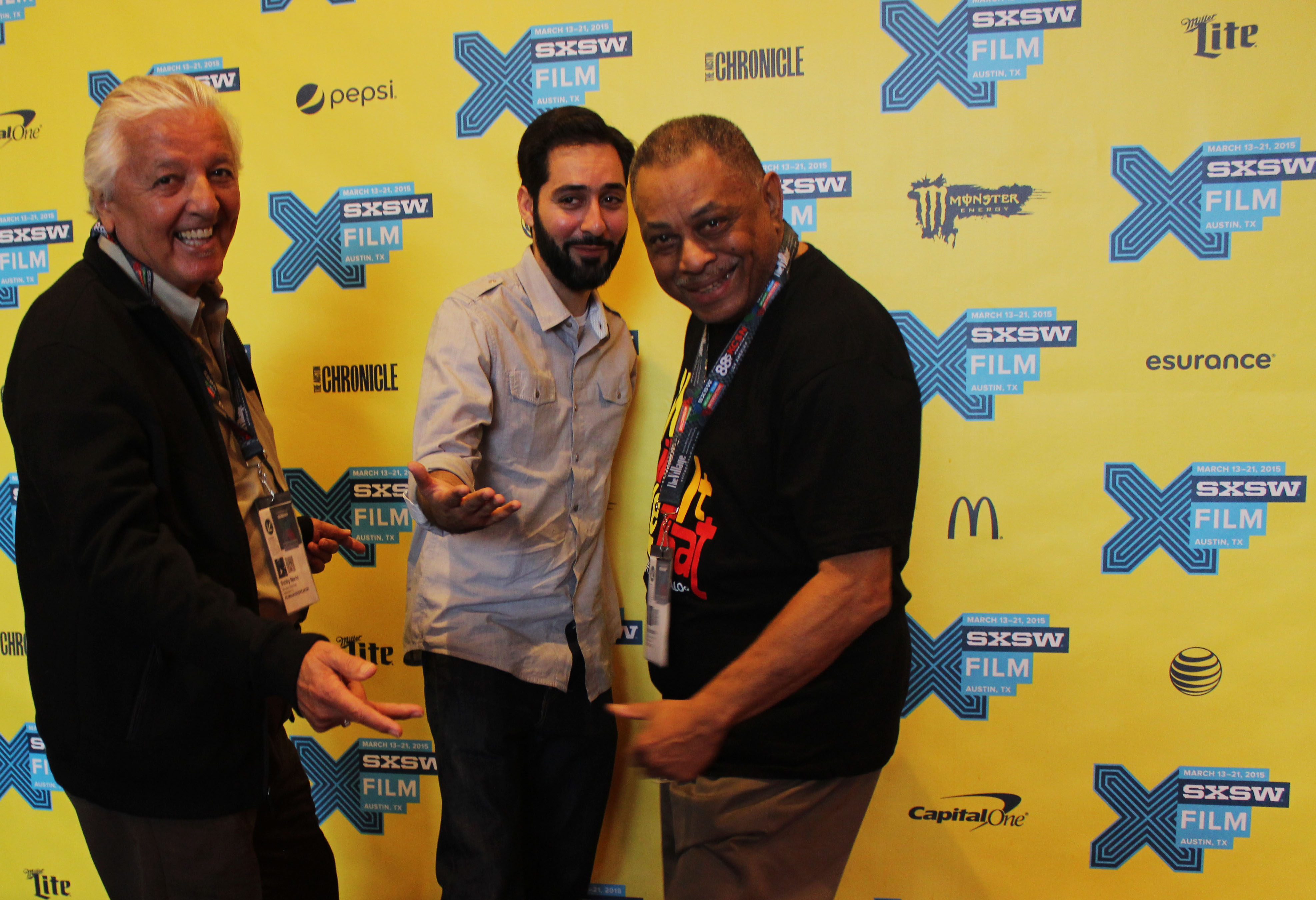Listeners:
Top listeners:
-
play_arrow
KTSW 89.9
“We Like It Like That” Chronicles, Champions the Underdog Story of Latin Boogaloo
todayApril 13, 2015

By Monica Solis
KTSW Music
A SXSW 2015 film review

Before there was salsa, there was Latin soul – more endearingly referred to as Latin Boogaloo. Boogaloo, a New York barrio-born fusion of Afro-Cuban beats, mixed with elements of jazz and soul, emerged as a funky, non-traditionalist musical style in the 1960’s.
“We Like It Like That,” a documentary directed by Matthew Ramirez Warren, traces the intriguing cultural roots of the funky, danceable “Boogaloo” phenomenon; the doc also examines the amazing rise, fall, and rebirth of boogaloo in the music industry.
Watch the trailer here:
Additionally, “We Like It Like That” explores the climate of social and political unrest in which boogaloo was born.
Joe Bataan, a musician featured in the documentary, recalls the social landscape he was in when he started playing boogaloo.
“It’s much more than the boogaloo story,” Bataan said. “We had a war, we had civil rights going on, Latin was being sung in English.”
Bataan says the boogaloo style connected people. It wasn’t long though, before boogaloo was nearly erased from history because of its emergent, bold attitude. The documentary notes how a boogaloo downfall in the 70’s was aided by a combination of disgruntled, traditionalist artists, as well as big record label executives looking to follow the next big trend.
“It (boogaloo) was a way, it was a life, and it was history in the making – and somebody sat on it,” Bataan said. “And of course, you know when you sit on history, you lose it. So thank God for guys like Matthew that had the insight to do something like this.”
Warren says it was the sound, as well as the social narrative of Latin boogaloo, that encouraged him to share its forgotten history.
“The Latino experience at that time has been overlooked and never quite given the attention it deserves,” Warren said.
Bobby Marin, producer for “We Like It Like That,” as well as a producer for boogaloo albums in the 60’s, says the boogaloo captured that Latino experience, while also providing cross-cultural connectivity.
“It brought a lot of people together, especially the young people. Instead of them going to different clubs, the boogaloo crowd consisted of Latinos, Blacks, Asians – every type of ethnicity,” Marin said. “It was like a melting pot of music.”
Warren said this cultural fusion brought on by the “brief, glorious period of boogaloo,” propelled him even more into creating “We Like It Like That.”
“It (boogaloo) didn’t fall into the traditional, standard Latin music. It was the bridge that brought all that together,” Warren said. “It deserved some attention.”

Warren, a native New Yorker, originally pitched the documentary as a graduate thesis project for his master’s in journalism. Within a couple of years of receiving his master’s degree, the journalist found himself delving deeper into the documentary.
Eventually, “We Like It Like That,” received funding from the National Endowment for the Arts, the New York State Council of the Arts and a public Kickstarter campaign, launching Warren into creating his first feature-length documentary.
It didn’t hurt, either, that the director eventually landed the support of world-famous Boogaloo musicians and producers, such as Johnny Colon, Bobby Marin, and Joe Bataan.
“My wife was reminding me the other day how when I first got Joe’s number I was like ‘I got Joe Bataan’s number in my cellphone,’” Warren said. “He’s an icon you know.”
Using footage of live Boogaloo performances and piecing together captivating interviews from musicans, such as Bataan, Warren was able to call some major attention to boogaloo in “We Like It Like That.” The documentary shows the boogaloo musicians reminiscing on the unique sound and story they got to be a part of as well.
For producer Marin, the experience was a bit surreal.
“Sitting in the audience, and watching the film, it kind of brought to reality what this whole story is about,” Marin said. “50 years later, I had no idea we were still going to be seeing the wonderful Joe Bataan play ‘Gyspy Woman,’ up there on the big screen. First time I heard it, I fell in love with it, and I’m still in love with that song.”
Marin is referring to a clip toward the end of the film, where we see Bataan performing his classic boogaloo hit “Gypsy Woman,” in present-day, in boogaloo’s hometown and first love – New York.
Watch the clip here:

While “We Like It Like That,” does focus largely on the beautiful, bold history that is boogaloo, it concludes with exploring where the genre is today. We see talented, boogaloo originals like Joe Bataan and Johnny Colon performing for ecstatic, surprised crowds in New York. Yet, we also learn of the musical style being reborn and transformed with new bands as well.
Warren says people are calling it “the boogaloo revival,” with talented young musicians from all over the nation such as The Boogaloo Assassins and Spanglish Fly, introducing their renditions of boogaloo to the masses.
While boogaloo originals like Bataan and Marin say they are excited about this, Marin does have some advice.
“I hope they don’t polish it up too much. Boogaloo has a certain dirtiness to it, you know, a raw sound,” Marin said. “And it’s not perfect, there are mistakes but it’s all part of the sound.”
Warren says, as a director, this is what he recognized as part of the appeal of boogaloo in the 60s.
“Yeah there were cosmetic mistakes in their music, yeah some of them were a little out of tune, or not nessecarily perfectly ‘on clave,’ but there was energy and passion and youth that drove the music and I think that’s what people to this day relate to when they hear it,” Warren said. “It’s not about music being perfect. Sometimes, it’s the imperfections that make music great.”
The greatness is still alive and well with boogaloo today.
“We Like It Like That” is equally great in its immersive and bold storytelling, helping to bring the power of boogaloo to the big screen for old and new fans alike.
Share this:
- Click to share on Twitter (Opens in new window)
- Click to share on Facebook (Opens in new window)
- Click to share on Tumblr (Opens in new window)
- Click to share on Pinterest (Opens in new window)
- Click to share on Reddit (Opens in new window)
- Click to email a link to a friend (Opens in new window)
- Click to print (Opens in new window)
Bobby Marin boogaloo film review Matthew Ramire musician Joe Bataan Story of Latin Boogaloo SXSW 2015 SXSW film we like it like that
Similar posts
This Blog is Propery of KTSW



Post comments (0)